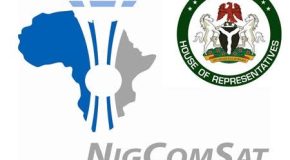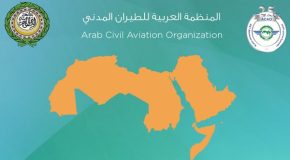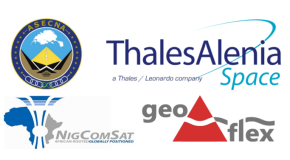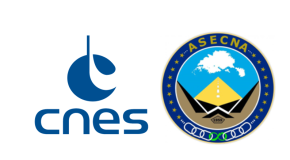The opening of SBAS to the world
In response to the rapid development of SBAS around the world, a number of SBAS initiatives are being developed in Africa, with the ultimate goal of having a single African SBAS by 2030. In addition to the overall continental engagement of the AUC, the RECs play a key role in interfacing with states through their own institutional and decision-making structures to mainstream SBAS in their regions on the basis of assessing the feasibility of the system both technically, economically and financially.
Given the role of RECs in regional integration and the impact of ongoing SBAS initiatives in Africa, the following four possible groupings have been used in the SBAS deployment roadmap.
Given the role of RECs in regional integration and the impact of ongoing SBAS initiatives in Africa, the following four possible groupings have been used in the SBAS deployment roadmap.
Future prospects for SBAS in Africa
The Africa-EU Strategic Partnership on Satellite Navigation adopted by the Heads of State and Government of Africa and Europe is an opportunity for Africa to benefit from satellite technology in the same way as other regions of the world, and to develop and rationalise its GNSS and SBAS technology skills. Indeed, the satellite navigation cooperation programme addresses the continent's real priorities, including safety and security, economic resilience, digitalisation and climate change, while keeping in mind the credo of inclusiveness. "No Country Left Behind" While there is increased interest in SBAS and new momentum since the AU Specialised Technical Committee (STC) ministerial meeting in Lomé on March, 13-17, 2017 which recommended the study and the cost-benefit analysis strategy, The JPO will ensure that the communication of GNSS/SBAS services goes beyond aviation to non-aviation user communities across the continent in order to foster the economic and social development anticipated through the use of satellite navigation systems and case studies.
Furthermore, at the dawn of the space economy era, the JPO is ready to support Africa to become a global player in the field of PNT. The JPO looks forward to the commitment and support of states to finalise its operationalisation as a Pan-African instrument for the coordination and support of satellite navigation and services in view of the profound transformation of its mandate and the expansion of its activities to all GNSS services and case studies.
Furthermore, at the dawn of the space economy era, the JPO is ready to support Africa to become a global player in the field of PNT. The JPO looks forward to the commitment and support of states to finalise its operationalisation as a Pan-African instrument for the coordination and support of satellite navigation and services in view of the profound transformation of its mandate and the expansion of its activities to all GNSS services and case studies.
The SBAS initiative in Nigeria

Nigeria, through NIGCOMSAT (the operator/manager of the NIGCOMSAT-1R satellite with Overlay Navigation Service (NOS)), formally applied in 2018 to join the GNSS Providers Forum as a provider of SBAS services with coverage over the African continent and surrounding oceans (Atlantic and Indian). In 2020, NIGCOMSAT's SBAS payload was used for ASECNA's A-SBAS programme, demonstrating true intra-African cooperation in this field. The initiative
The AFCAC SBAS initiative

In North Africa, AFCAC has developed a GNSS policy inspired by the ICAO GNSS policy, the GNSS policies of the ICAO regional office and the PIRG, as well as the Euro-Med 27 PROJECT action plan, relying on the presence of the EGNOS geostationary footprint and the coverage of the service area over the African Civil Aviation Organisation (AFCAC) region, is supportive of the implementation of the SBAS/EGNOS service in this region and is supported by a GNSS policy, programme and training plan, which assists States in achieving the regional and national objective of performance-based navigation (PBN), and ensuring full SBAS coverage of all AFCAC States.
The SBAS initiative in South Africa

This initiative was led by the South African National Space Agency (SANSA) in 2016. It involved the deployment of an end-to-end SBAS test-bed with a live signal in space to demonstrate the potential benefits of implementing SBAS in Southern Africa. Flight and drone trials, non-aircraft trials in the agricultural and maritime sectors, as well as trials using SBAS, RTK and professional grade receivers, were conducted.
The ASECNA SBAS programme

The ASECNA SBAS programme - SBAS for Africa and the Indian Ocean (A-SBAS), a regional navigation augmentation system, involves the implementation of an independent SBAS system in accordance with the African Union's "indigenous system" space policy, in line with a licensing agreement signed with Europe on the use of EGNOS technology. A signal in space (SiS), compliant with ICAO Standards and Recommended Practices (SARP) and RTCA Minimum Operational Performance Specifications (MOPS), is currently being broadcast by the Nigerian satellite NIGCOMSAT-1R for technical trials to enhance operational skills, to conduct field demonstrations in the aviation domain for aircraft and rotorcraft, as well as in the non-aviation domain, including specific new services (PPP, DAS, and alerting services).













